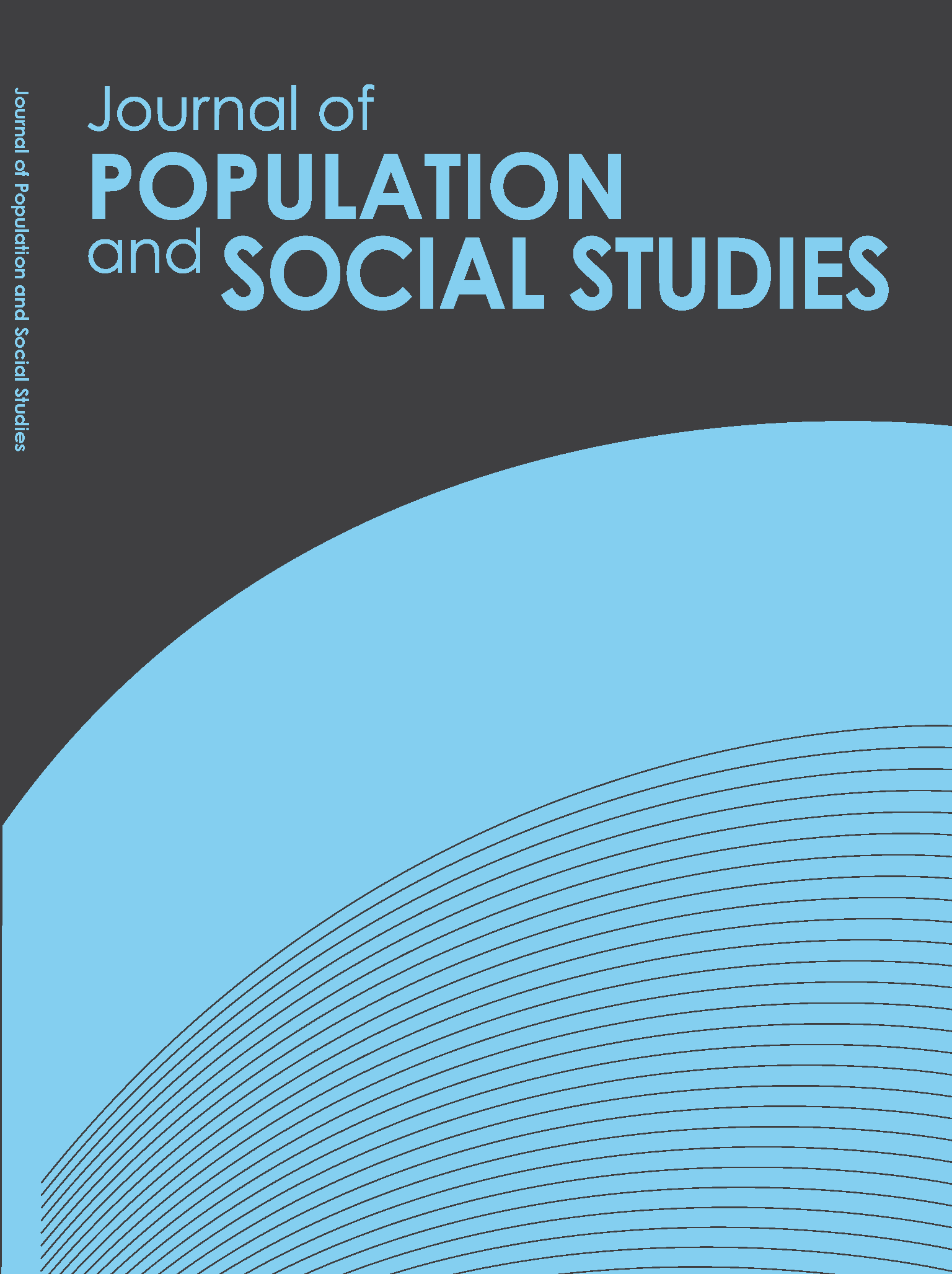State of Societal Uncertainty as a Pattern of Modern Ukrainian Society
Main Article Content
Abstract
The purpose of this article is to justify the model of societal uncertainty as a determinant of collective social behavior on the example of the development of societal expectations and perceptions of Ukrainians. The basic methodological premise of the study is to think of society as a “field of opportunity” for social actors, and the research hypothesis is that Ukrainians are in no hurry to change the permanent state of ‘uncertainty or instability’ to ‘certainty or stability.’ The results of the research project “Social Conflictogenity of Ukrainian Society” were interpreted, concerning the attitude of representatives of different social groups towards the state of “societal uncertainty.” It was concluded that a certain destructuring of modern Ukrainian society contributes to the consolidation of societal uncertainty among members of the society as a model of interaction among social subjects. This destructuring is exacerbated by the dominance in most respondents of a passive strategy of forming societal expectations, and Ukrainians’ understanding of societal expectations as wishes. The main issue for members of the society in the situation of societal uncertainty is connected with the uncertainty of social perspectives, and not so much at the personal level, as at the level of social groups and society in general.
Article Details
References
• Amiel, Y., & Cowell F. (2007). Social welfare and individual preferences under uncertainty: a questionnaire-experimental approach. Research on Economic Inequality, 14, 345-362. https://doi.org/10.1016/s1049-2585(06)14016-8.
• Berger, P. (1996). Invitation to Sociology: A Humanistic Perspective. Moscow: Aspekt Press.
• Bodnar, V., & Pelin, А. (2012). Uncertainty as the core of a new social paradigm. In Relevant issues of Ukrainian political science (pp. 204-207). Uzhhorod: Uzhhorod National University Publishing House.
• Deaux, K., & Martin, D. (2003). Interpersonal networks and social categories: Specifying levels of context in identity processes. Social Psychology Quarterly, 66(2), 101-117. https://doi.org/10.2307/1519842.
• Dodonov, R., & Mofa, S. (2003). Priority directions of optimization of national-state consciousness in Ukraine. Politychnyi Menedzhment, 2, 3-13. https://doi.org/10.15421/171986
• Fawcett, T. W., Fallenstein, B., Higginson, A. D., Houston, A.I., Mallpress, D.E.W., Trimmer, P.C., & McNamara, J.M. (2014). The evolution of decision rules in complex environments. Trends in Cognitive Sciences, 18, 153-161. https://psycnet.apa.org/doi/10.1016/j.tics.2013.12.012
• Fedotov, A.M., Murzakhmetov, A.N., & Dyusembaev, A.E. (2018). Expansion of ideas and processes in social and biological communities. Eurasian Journal of Mathematical and Computer Applications, 6(4), 17-28.
• Gaudeul, A. (2013). Social preferences under uncertainty. Jena Economic Research Papers, 2013-024. https://ideas.repec.org/p/jrp/jrpwrp/2013-024.html
• Griffin, E. (2015). Communication: theory and practice. Kharkiv: Humanitarnyi tsentr.
• Holovakha, Ye. I., & Panina, N. V. (1994). Social madness. Kyiv: Abris.
• Horbachyk, A., & Holovakha, Ye. (2012). Tendencies in social change in Ukraine and Europe: According to the European social survey 2005-2007-2009-2011. Kyiv: Sociology Institute of the National Academy of Sciences of Ukraine.
• Johnston, J. (2019). Uncertainties can drive positive social change & success. Retrieved from https://www.mpi.org/blog/article/uncertainties-can-drive-positive-social-change-success
• Kremen, V. (2013). Man in the “open world” controversy. Navchannia i Vykhovannia Obdarovanoi Dytyny, 1, 9-12.
• Kuz, О. М., & Sakhan, О. М. (2016). Post-modern theorization of social reality. Bulletin of the National University “Yaroslav Mudryi Law Academy of Ukraine”, 2(29), 95-112. http://dspace.nlu.edu.ua/handle/123456789/14589
• Lyotard, J.-F. (1992). Note on the meaning of “post”. In Lyotard, Jean-Francois, Pefanis, Julian, Thomas, Morgan the postmodern explained to children: correspondence, 1982-1985 (pp. 89-93). Sydney: Power Publications.
• Popova, І. (1999). Everyday consciousness in a transitional society: symptoms of crisis. Sociology: Theory, Methods, Marketing, 1, 5-22. https://nbn-resolving.org/urn:nbn:de:0168-ssoar-104079
• Rand, D. G., Peysakhovich, A., Kraft-Todd, G.T., Newman, G.E., Wurzbacher, O., Nowak, M.A., & Greene, J.D. (2014). Social heuristics shape intuitive cooperation. Nature Communication 5, article number 3677. https://doi.org/10.1038/ncomms4677.
• Rishniak, І. V. (2003). Systematic analysis of risk and uncertainty categories. Bulletin of Lviv Polytechnic National University. Information Systems and Networks, 489, 263-275.
• Savage, S. V., Melamed, D., & Vincent, A. (2013). The role of uncertainty in social influence. In Advances in Group Processes: Thirtieth Anniversary Edition (pp. 109-129). Bingley: Emerald Group Publishing Limited. https://doi.org/10.1108/s0882-6145(2013)0000030008.
• Saveliev, Yu. B. (2015). Contradictions of contemporary theoretical interpretations of social development, social evolution, modernization and social change. Sociology: Theory, Methods, Marketing, 3, 59-74.
• Shtompka, P. (1996). Sociology of social change. Moscow: Aspekt Press.
• Shulha, М. (2018). Social matrix failure. Kyiv: Sociology Institute of the National Academy of Sciences of Ukraine.
• Symonchuk, О. (2016). Institutionalization of class analysis in Ukrainian sociology. Sociology: Theory, Methods, Marketing, 4, 19-39. http://simonchuk.kiev.ua/wp-content/uploads/2017/03/2016-4-Институционализация1.pdf
• Thomas, W. (2002). The definition of the situation. In: N. Rousseau (Ed.), Self, symbols, and society: classic readings in social psychology (pp. 103–115). Lanham, MD: Rowman & Littlefield.
• van den Berg, P., & Wenseleers T. (2018). Uncertainty about social interactions leads to the evolution of social heuristics. Nature Communications, 9, article number 2151. https://doi.org/10.1038/s41467-018-04493-1.
• Vdovychenko, E. (2016). Theoretical and methodological foundations of anti-corruption philosophical and educational concept. Skhid, 1(141). https://doi.org/10.21847/1728-9343.2016.1(141).64305.
• Yereskova, Т. (2016). The social nature of the conflictogenity of modern Ukrainian society: the dichotomy of “progressing” VS “leave as is/turn back as it was”. Ukrayinskyi Instytut Stratehii Hlobalnoho Rozvytku i Adaptatsii, 2, 183-193.
• Yessilov, A. (2015). Social work with immigrants in Kazakhstan as means of prevention of the social conflicts in society. Mediterranean Journal of Social Sciences, 6(5), 259-264.
• Zabolotna, N. (2018). Ukraine at 27: live fast, die young? Ukrainska Pravda. Retrieved from https://life.pravda.com.ua/columns/2018/08/23/232838/
• Zborovsky, G.E., & Ambarova, P.A. (2016). Future educational communities: time perspective in the context of social uncertainty. Sotsiologicheskie Issledovaniya, 10, 3-13.
• Zlobina, О. (Ed.). (2011). Social interests in the context of socio-cultural modernization. Kyiv: Sociology Institute of the National Academy of Sciences of Ukraine.


